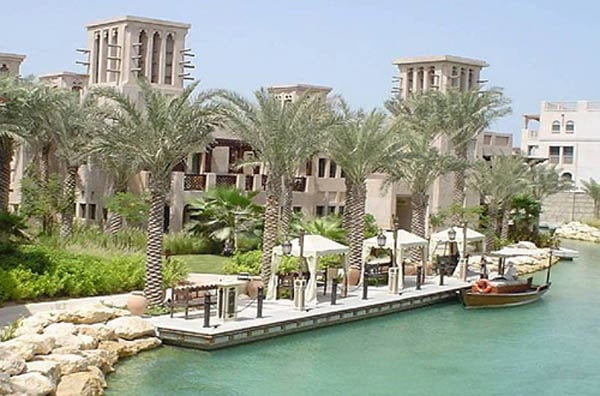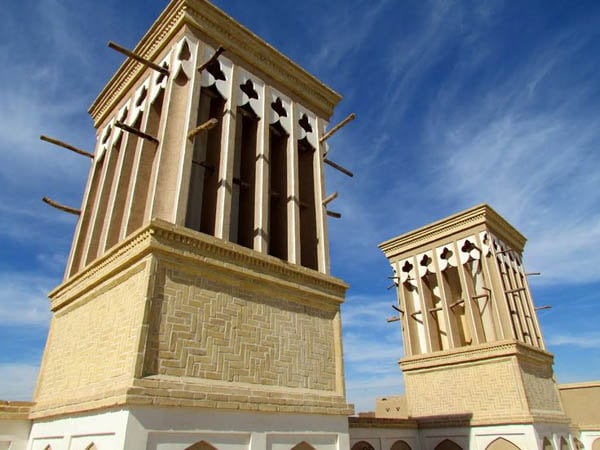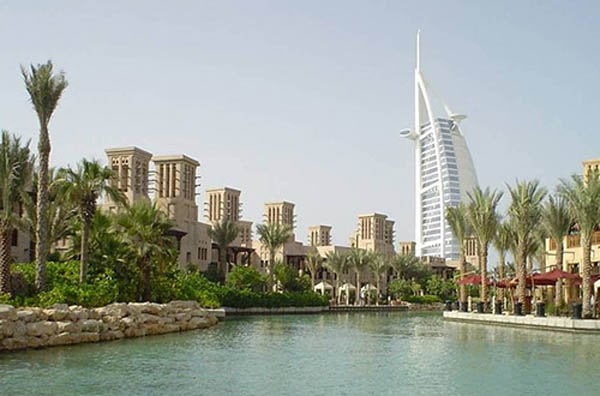Dubai is one of the main Arab cities which have reproduced and set up Iranian wind-catchers mainly used in cities with hot climate like Yazd province and Bastak city in Hormozgan province in southern Iran.
Over the past years, the UAE and some other Persian Gulf states have attempted to draw on different architectures from across the world to create artificial tourist attractions for their cities, a Farsi report by ISNA said.
“The Iranian wind-catchers from Yazd and Bastak are now turning into a familiar scene in Dubai attracting millions of foreign tourists annually,” the report added.
 Bastakieh Replete with Iranian Wind Towers
Bastakieh Replete with Iranian Wind Towers
Bastakieh neighbourhood in eastern Dubai located along Dubai Waterway is dotted with a large number of Iranian wind-catchers.
With a 300m length and 100m width, the neighbourhood accommodates lots of houses decorated with wooden doors and Iranian-Islamic stucco-works attracting thousands of foreign tourists each year.
The neighbourhood was established in 1890 by Iranian migrants from the cities of Bandar Lengeh and Bastak in Hormozgan province, and is named after Bastak.
Most of the houses in Bastakieh are two-storey buildings. The main feature of all houses in the neighbourhood is their Persian architecture, including the wind-catchers.
Growing Number of Wind-catchers in Persian Gulf
Following the spread of Iranian wind towers in Dubai, other emirates of the UAE like Abu Dhabi, Sharjah and Ajman have also begun to establish Iranian wind-catchers in different parts of their cities to attract foreign tourists.

Interestingly enough, the UAE has registered the Iranian wind-catchers, which are called Barjil in Arabic, as its own cultural and historical heritages in the country’s school books.
